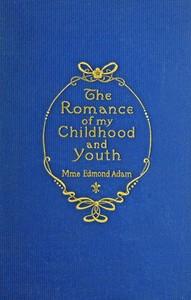|
|
Read this ebook for free! No credit card needed, absolutely nothing to pay.Words: 14909 in 17 pages
This is an ebook sharing website. You can read the uploaded ebooks for free here. No credit cards needed, nothing to pay. If you want to own a digital copy of the ebook, or want to read offline with your favorite ebook-reader, then you can choose to buy and download the ebook.

: The miracle of Saint Anthony by Maeterlinck Maurice Maurice Arthur Bartlett Author Of Introduction Etc Teixeira De Mattos Alexander Translator - Anthony of Padua Saint 1195-1231 Drama@FreeBooksThu 08 Jun, 2023 INDEX 313 EVOLUTION. THE LIVING ORGANISM AND ITS NATURAL HISTORY The Doctrine of Evolution is a body of principles and facts concerning the present condition and past history of the living and lifeless things that make up the universe. It teaches that natural processes have gone on in the earlier ages of the world as they do to-day, and that natural forces have ordered the production of all things about which we know. It is difficult to find the right words with which to begin the discussion of so vast a subject. As a general statement the doctrine is perhaps the simplest formula of natural science, although the facts and processes which it summarizes are the most complex that the human intellect can contemplate. Nothing in natural history seems to be surer than evolution, and yet the final solution of evolutionary problems defies the most subtle skill of the trained analyst of nature's order. No single human mind can contain all the facts of a single small department of natural science, nor can one mind comprehend fully the relations of all the various departments of knowledge, but nevertheless evolution seems to describe the history of all facts and their relations throughout the entire field of knowledge. Were it possible for a man to live a hundred years, he could only begin the exploration of the vast domains of science, and were his life prolonged indefinitely, his task would remain forever unaccomplished, for progress in any direction would bring him inevitably to newer and still unexplored regions of thought. Therefore it would seem that we are attempting an impossible task when we undertake in the brief time before us the study of this universal principle and its fundamental concepts and applications. But are the difficulties insuperable? Truly our efforts would be foredoomed to failure were it not that the materials of knowledge are grouped in classes and departments which may be illustrated by a few representative data. And it is also true that every one has thought more or less widely and deeply about human nature, about the living world to which we belong, and about the circumstances that control our own lives and those of our fellow creatures. Many times we withdraw from the world of strenuous endeavor to think about the "meaning of things," and upon the "why" and "wherefore" of existence itself. Every one possesses already a fund of information that can be directly utilized during the coming discussions; for if evolution is true as a universal principle, then it is as natural and everyday a matter as nature and existence themselves, and its materials must include the facts of daily life and observation. Although the doctrine of evolution was stated in very nearly its present form more than a century ago, much misunderstanding still exists as to its exact meaning and nature and value; and it is one of the primary objects of these discussions to do away with certain current errors of judgment about it. It is often supposed to be a remote and recondite subject, intelligible only to the technical expert in knowledge, and apart from the everyday world of life. It is more often conceived as a metaphysical and philosophical system, something antagonistic to the deep-rooted religious instincts and the theological beliefs of mankind. Truly all the facts of knowledge are the materials of science, but science is not metaphysics or philosophy or belief, even though the student who employs scientific method is inevitably brought to consider problems belonging to these diverse fields of thought. A study of nervous mechanism and organic structure leads to the philosophical problem of the freedom of the will; questions as to the evolution of mind and the way mind and matter are related force the investigator to consider the problem of immortality. But these and similar subjects in the field of extra-science are beyond its sphere for the very good reason that scientific method, which we are to define shortly, cannot be employed for their solution. Evolution is a science; it is a description of nature's order, and its materials are facts only. In method and content it is the very science of sciences, describing all and holding true throughout each one. The overwhelming importance of knowing about natural laws and universal principles is not often realized. What have we to do with evolution and science? Are we not too busy with the ordering of our immediate affairs to concern ourselves with such remote matters? So it may appear to many, who think that the study of life and its origin, and of the vital facts about plants and animals may be interesting and may possess a certain intellectual value, but nothing more. The investigation of man and of men and of human life is regarded by the majority as a mere cultural exercise which has no further result than the recording of present facts and past histories; but it is far otherwise. Science and evolution must deal with mere details about the world at large, and with human ideals and with life and conduct; and while their purpose is to describe how nature works now and how it has progressed in the past, their fullest value is realized in the sure guidance they provide for our lives. This cannot be clear until we reach the later portions of our subject, but even at the outset we must recognize that knowledge of the great rules of nature's game, in which we must play our parts, is the most valuable intellectual possession we can obtain. If man and his place in nature, his mind and social obligations, become intelligible, if right and wrong, good and evil, and duty come to have more definite and assignable values through an understanding of the results of science, then life may be fuller and richer, better and more effective, in direct proportion to this understanding of the harmony of the universe. And so we must approach the study of the several divisions of our subject in this frame of mind. We must meet many difficulties, of which the chief one is perhaps our own human nature. For we as men are involved, and it is hard indeed to take an impersonal point of view,--to put aside all thoughts of the consequences to us of evolution, if it is true. Yet emotion and purely human interest are disturbing elements in intellectual development which hamper the efforts of reason to form assured conceptions. We must disregard for the time those insistent questions as to higher human nature, even though we must inevitably consider them at the last. Indeed, all the human problems must be put aside until we have prepared the way for their study by learning what evolution means, what a living organism is, and how sure is the evidence of organic transformation. When we know what nature is like and what natural processes are, then we may take up the questions of supreme and deep concern about our own human lives. Human curiosity has ever demanded answers to questions about the world and its make-up. The primitive savage was concerned primarily with the everyday work of seeking food and building huts and carrying on warfare, and yet even he found time to classify the objects of his world and to construct some theory about the powers that made them. His attainments may seem crude and childish to-day, but they were the beginnings of classified knowledge, which advanced or stood still as men found more or less time for observation and thought. Freed from the strife of primeval and medieval life, more and more observers and thinkers have enlarged the boundaries and developed the territory of the known. The history of human thought itself demonstrates an evolution which began with the savages' vague interpretation of the "what" and the "why" of the universe, and culminates in the science of to-day. Such a principle as the law of gravitation, like evolution, is true if the basic facts are true, if they are reasonably related, and if the conclusion is drawn reasonably from them. It is true for all persons who possess normal minds, and this is why Huxley speaks of science as "common sense,"--that is, something which is a reasonable and sensible part of the mental make-up of thinking persons that they can hold in common. The form and method of science are fully set forth by these definitions, and the purpose also is clearly revealed. For the results of investigation are not merely formulae which summarize experience as so much "conceptual shorthand," as Karl Pearson puts it, but they must serve also to describe what will probably be the orderly workings of nature as future experience unfolds. Human endeavor based upon a knowledge of scientific principles must be far more reliable than where it is guided by mere intuition or unreasoned belief, which may or may not harmonize with the everyday world laws. Just as the law of gravitation based upon past experience provides the bridge builder and the architect with a statement of conditions to be met, so we shall find that the principles of evolution demonstrate the best means of meeting the circumstances of life. Evolution has developed, like all sciences, as the method we have described has been employed. Alchemy became chemistry when the so-called facts of the medievalist were scrutinized and the false were discarded. Astrology was reorganized into astronomy when real facts about the planets and stars were separated from the belief that human lives were influenced by the heavenly bodies. Likewise the science of life has undergone far-reaching changes in coming down to its present form. All the principles of these sciences are complete only in so far as they sum up in the best way the whole range of facts that they describe. They cannot be final until all that can be known is known,--until the end of all knowledge and of time. It is because he feels so sure of what has been gained that the man of science seems to the unscientific to claim finality for his results. He himself is the first to point out that dogmatism is unjustified when its assertions are not so thoroughly grounded in reasonable fact as to render their contrary unthinkable. He seeks only for truth, realizing that new discoveries must oblige him to amend his statement of the laws of nature with every decade. But the great bulk of knowledge concerning life and living forms is so sure that science asserts, with a decision often mistaken for dogmatism, that evolution is a real natural process. Wherever we look we see evidence of nature's change; every rain that falls washes the earth from the hills and mountains into the valleys and into the streams to be transported somewhere else; every wind that blows produces its small or greater effect upon the face of the earth; the beating of the ocean's waves upon the shore, the sweep of the great tides,--these, too, have their transforming power. The geologists tell us that such natural forces have remodeled and recast the various areas of the earth and that they account for the present structure of its surface. These men of science and the astronomers and the physicists tell us that in some early age the world was not a solid globe, with continents and oceans on its surface, as now; that it was so very hot as to be semi-fluid or semi-solid in consistency. They tell us that before this time it was still more fluid, and even a mass of fiery vapors. The earth's molten bulk was part of a mass which was still more vast, and which included portions which have since condensed to form the other bodies of the solar system,--Mars and Jupiter and Venus and the rest,--while the sun remains as the still fiery central core of the former nebulous materials, which have undergone a natural history of change to become the solar system. The whole sweep of events included in this long history is called cosmic evolution; it is the greater and more inclusive process comprising all the transformations which can be observed now and which have occurred in the past. Free books android app tbrJar TBR JAR Read Free books online gutenberg More posts by @FreeBooks
: Parodies of the works of English & American authors vol. VI by Hamilton Walter Compiler - Parodies@FreeBooksThu 08 Jun, 2023

: Parodies of the works of English & American authors vol. V by Hamilton Walter Compiler - Parodies@FreeBooksThu 08 Jun, 2023
|
Terms of Use Stock Market News! © gutenberg.org.in2025 All Rights reserved.






